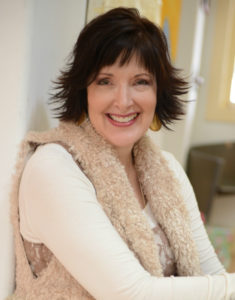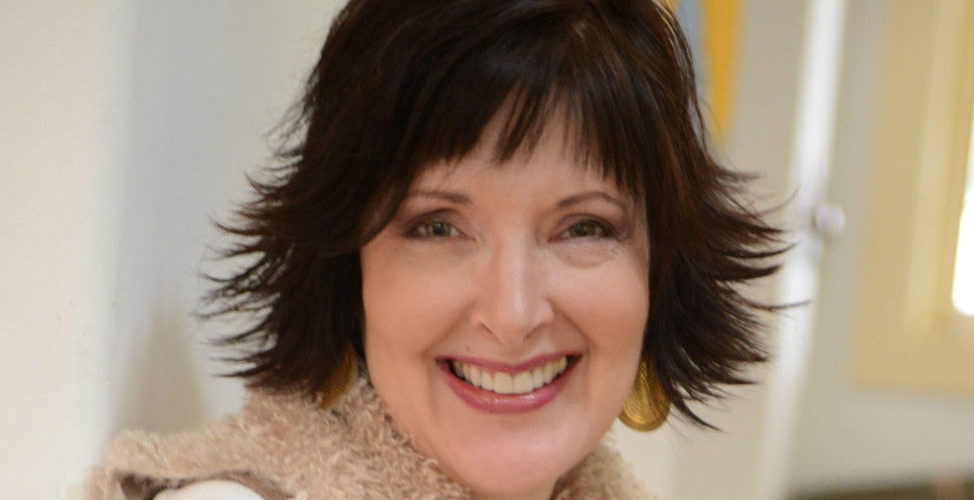Inspiring people offer their perspective on what it means to Eat Like a Yogi, and how we can all better serve the planet and each other.
“With yoga, just about anything is possible!”
 Alexa Robbins, of La Conner, Washington, is a clairvoyant tarot card reader who has been practicing for more than 30 years. She recently became an Anusara-based yoga instructor and also teaches Balanced Body Pilates with a specialty in functional movement for mature adults.
Alexa Robbins, of La Conner, Washington, is a clairvoyant tarot card reader who has been practicing for more than 30 years. She recently became an Anusara-based yoga instructor and also teaches Balanced Body Pilates with a specialty in functional movement for mature adults.
Q: Tell us about when and how you came to yoga.
A: I first encountered yoga while a student in the theatre department at Western Washington University. I’d recently broken my leg in a skiing accident, and it was not healing well. A professor’s wife, noticing my discomfort, encouraged me to attend her Hatha yoga class. I loved it from the start!
Q: Do you have a favorite pose?
A: My favorite is Mountain Pose. While seemingly simple, it both grounds and uplifts me. It incorporates all of the Anusara alignment principles and allows me to be fully present and embodied.
Q: What does it mean to you to Eat Like a Yogi?
A: For me, that idea means eating with gratitude, being thankful for those who’ve grown and those who’ve prepared my food. I live in a farming community so I eat mostly a locavore diet and limit my carbon footprint. I strive to eat in season to benefit both my body and the earth. I know many of the farmers, and purchase foods grown with ethical practices.
Q: Is there a correlation between the way you eat and your yoga practice?
A: Practicing yoga has made me more in tune with inner wisdom and my physical body (being clairvoyant can mean it’s easier to reside in my energy body than in my flesh and bone one). I’m more aware [now] of foods that do not serve my well being. I’ve cultivated more simplicity in my life and in my cooking since practicing yoga. I’m less attached to things outside myself to avoid being present (such as sugar or other toxins).
I do not judge another’s dharma when I stay on my mat. People have a right to eat fast food if they choose to. My first local teacher shared this prayer: “May our practice benefit ourselves, those we know and love, those we don’t know and those we have difficulty knowing and loving.” Eating and yoga are both aspects of a prayerful, mindful life whether on the mat or at the table. I pray that my nourishment allows me to be of greater service.
Q: Which item in the Manifesto do you feel is most relevant right now, and why?
A: “It’s all progress. Even small changes make a difference.”
This idea of small changes is so important. In our extroverted, outcome-oriented society, many people believe small or slow is insignificant. However, when we create tiny sustainable changes over time, we gain greater wisdom, deeper strength and integration. We are all, always, works in progress. There is nowhere to go except right here. I remind my students that we would not ask a baby to run a marathon. We deserve to be gentle with ourselves and to see each step—even backsliding—as a opportunity for growth.
Q: What do you believe is the most important thing yogis can do when it comes to creating meaningful change on the planet?
A: I’m excited to see yoga becoming available to those well outside the yoga studio: from the incarcerated to sufferers of PTSD, to the elderly and to children. The more people who have access to yoga, the kinder and more enlightened a world we may create. Even the Trudeaus do yoga!
Q: Is there anything else you’d like to add?
A: I’d like to add that it’s never to late to start a yoga practice. We need not be fit, young, or have a perfect body. I entered yoga teacher training at age 54 on a broken and sprained foot. Approaching yoga with curiosity, playfulness, reverence, and an open mind not only brings more joy and well being into our lives, but can elicit a surprising transformation. I certainly never set out to become a teacher. With yoga, I guess just about anything is possible!
